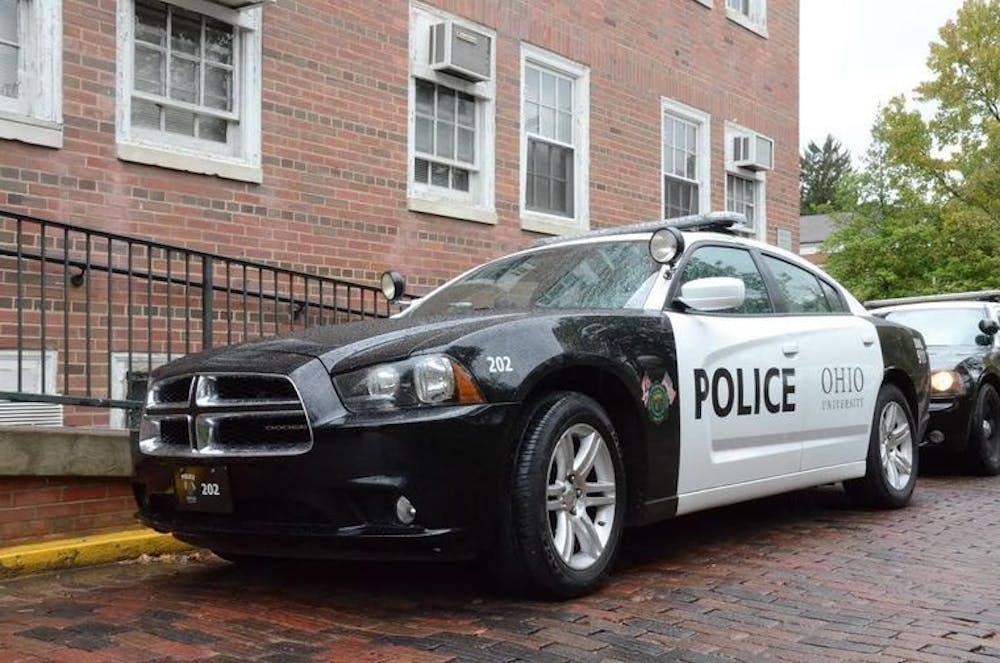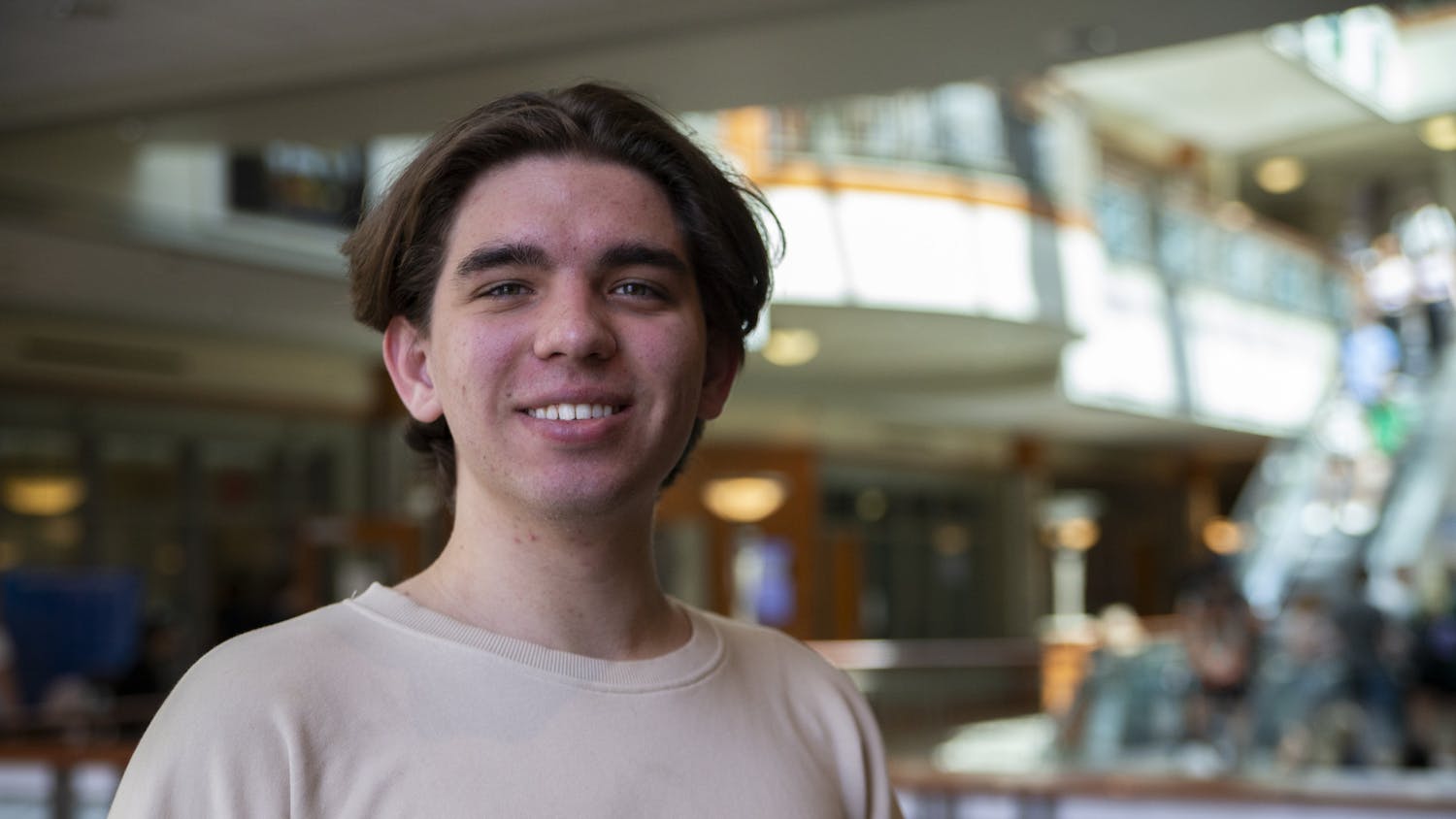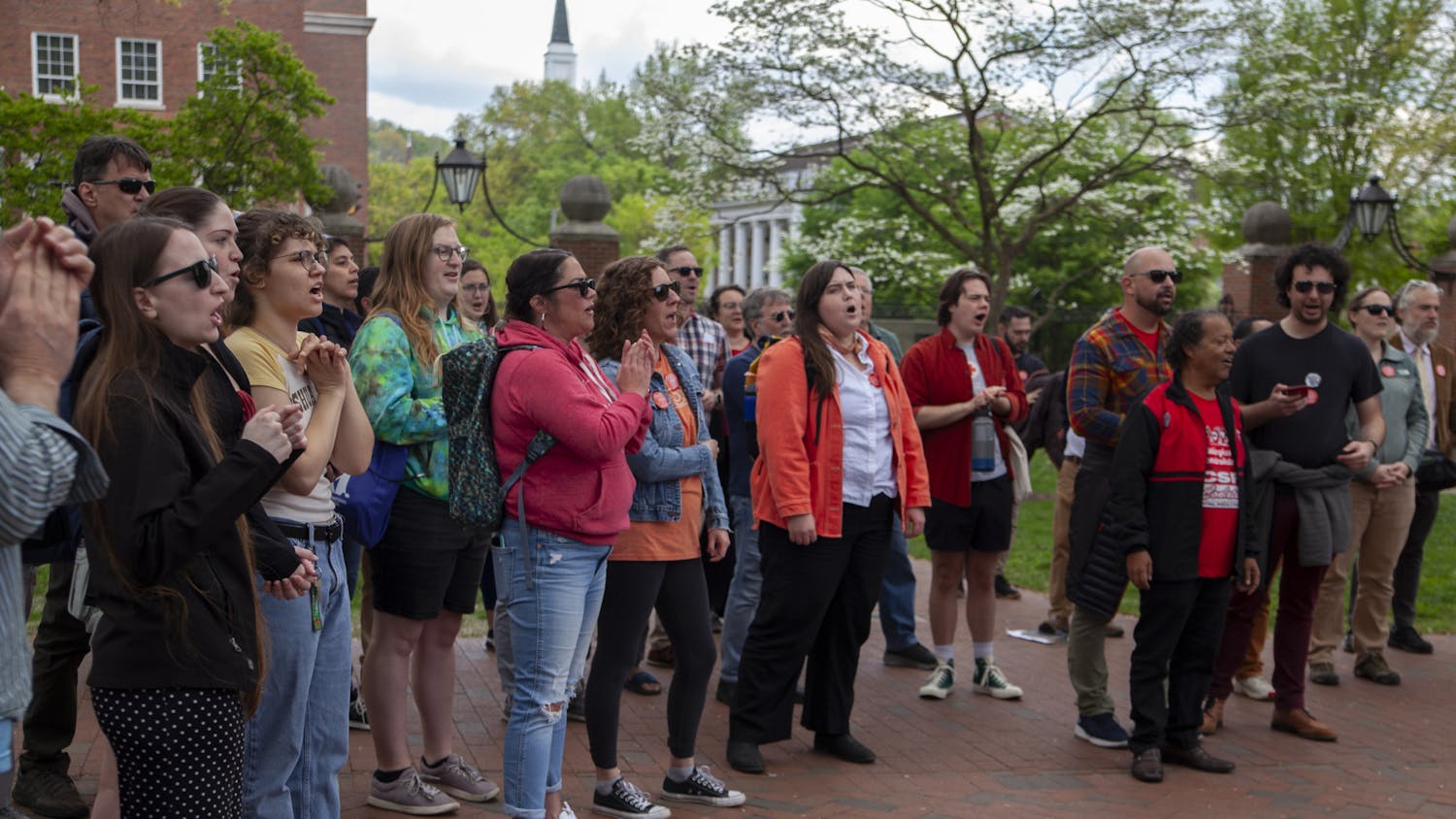In an email, OUPD Chief Andrew Powers said all cases were between people who knew each other and called on faculty and staff to help in reducing the problem of sexual assault.
The Ohio University Police Department received nine reports of sexual assault this semester, OU Police Chief Andrew Powers said in an email sent to the student body Wednesday afternoon.
In the message sent to OU students and staff members, Powers summarizes some of the details from the recent assault cases, as well as stating all groups on campus must be part of the solution.
“Sexual assault and rape culture are everyone’s problem and I encourage every member of our community to be a part of the solution,” Powers said in the email.
The nine reported cases don’t suggest an increase in sexual assault, Powers said. Instead, they suggest more survivors are coming forward instead of of keeping quiet.
All of the cases were between two people who knew each other, Powers said in the email, adding that the cases began as consensual situations. A majority of cases involved alcohol, and in two cases, the parties involved met on Tinder, a dating app.
Powers said in the email although these alleged crimes began as consensual encounters, the survivors “reported that the assailant did not have consent to engage in sex, continued after consent was withdrawn, or engaged in conduct beyond her consent.”
Powers acknowledged the department has not sent a crime alert for any of the nine cases.
{{tncms-asset app="editorial" id="d3a2ed24-6643-11e5-bc48-6f732f46f46c"}}
“It’s important to understand that crime alerts are not automatically issued every time a major crime is reported,” he said in the email. “Instead, we examine the specific facts of each report to determine if an ongoing threat to the community exists and if so, we issue a crime alert.”
The department also considers the emotional state of the survivors before sending out an alert, as to not cause them any further trauma, Powers said in the email. OUPD decides to release alerts based on uniqueness of the crime, whether the department has identified a suspect, whether the suspect’s history suggests they may have been involved in similar crimes and whether the department believes premeditation or predatory behavior may have been involved.
“Deciding whether or not to issue a crime alert is something we take very seriously, as protecting the safety of our community is our primary mission,” Powers said in the email.
The email said sex without ongoing, willing consent is a crime. This consent must be present every time the couple engages in sexual activities, Powers said in the email, regardless of previous encounters.
{{tncms-asset app="editorial" id="d3a2ed24-6643-11e5-bc48-6f732f46f46c"}}
“Consent is not just the absence of ‘no,’ it is the presence of voluntary, continuing, and willing engagement,” Powers said in the email. “For example, if you have sex with someone who seems reluctant, or you continue having sex with someone who pushes you off, moves away, or otherwise withdraws, you are committing a felony that could potentially result in a lengthy prison sentence.”
To further educate about consent, the email links to a video released by F--kRapeCulture in February about consent.
Students and faculty can fight sexual assault by “creating a culture of intolerance for that kind of behavior,” Powers said. He encouraged people to stand up to people who trivialize or joke about sex-related crimes, and avoid these behaviors themselves.
OU President Roderick McDavis directly Tweeted from the OU President's Office account, which linked to the information provided in the email and said, "Every member of the @ohiou community should be a part of ending sexual assault and #rapeculture."
Nick Robertson, a freshman studying health sciences undecided, said he was surprised to hear about the sexual assault cases.
“Everyone makes it feel like home here,” Robertson said. “It’s strange knowing someone would do that.”
Dylan Conley, a freshman studying computer science, said the university and OUPD already do a lot of sexual assault prevention, and aren’t sure what else they could do.
“You go through so many programs about consent,” Conley said. “You’d think people would understand by now. We had to sit through four hours about it.”
Although hearing about the assaults worried Chelsea Kessler, a sophomore studying accounting, she said learning of so many sexual assaults didn’t make her feel unsafe.
“I feel more safe in the sense that now I’m aware of it, and they’re aware of it,” she said. “They’re making sure people have access to that information.”
bg272614@ohio.edu
@baileygallion






